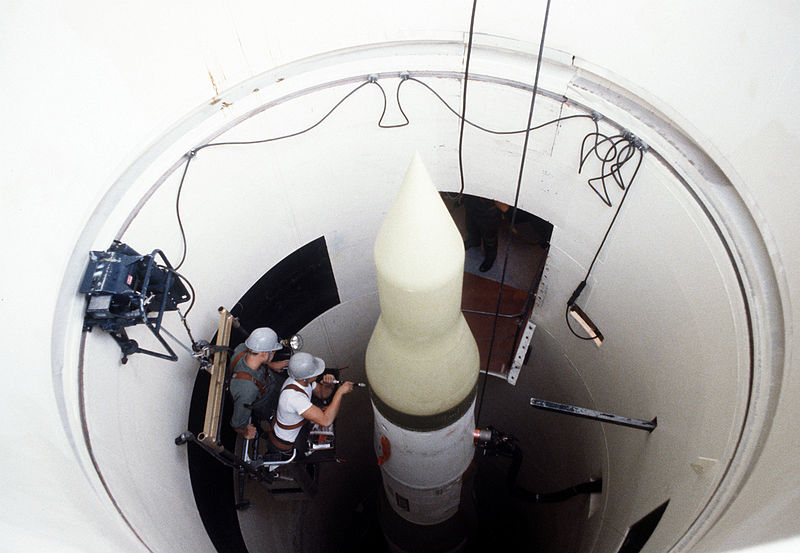Time for double or nothing with North Korea
Posted By Rod Lyon on May 29, 2013 @ 14:30
In a recent article [2] in Foreign Affairs, Robert Art and Robert Jervis wrote about the late Kenneth Waltz’s unique contribution to the field of international politics. One of the things Waltz brought to his research was an interest in economics and, as Art and Jervis note, that interest made Waltz focus on incentives. So let’s have a look at the incentives on the current North Korean nuclear issue.
At the moment, we hold out to Pyongyang the incentive that it can have a proper economy and become a fully-fledged member of the international community if it renounces its nuclear program. We pair that incentive with a matching disincentive: that if North Korea proceeds down the nuclear path it will find itself subjected to increasingly stringent sanctions and international isolation.
That incentive structure hasn’t changed much over the last two decades. But any observer of North Korean behaviour over that time would have to conclude that those incentives don’t seem to be delivering the desired outcome. North Korea has now conducted three nuclear tests, all of small but gradually increasing yield, and has opened a second pathway—uranium enrichment—to the production of fissile material, alongside its earlier plutonium reprocessing efforts. It has constructed a missile that can put a satellite into orbit. True, the satellite’s probably pretty lightweight, but the launch vehicle is clearly the basis of an intercontinental delivery system.
So maybe it’s time to try something new. At the moment we’re leaving Pyongyang free to tilt the nuclear balance on the Korean peninsula in its own favour. And Kim Jong-un, like his father, seems to believe that the gain to be derived from doing that outweighs the disincentives in the current reward and punishment pattern. We have to take that incentive away.
The current insistence by Beijing that the North should return to a path of dialogue seems to do little to change the basic calculation. Perhaps it’s time that we started playing a game of ‘double or nothing’ with North Korea. Washington should make clear to Pyongyang that for every warhead the North is believed to possess, the US will deploy two in South Korea. But it should simultaneously make clear that for every warhead the North subsequently reduces, the US will withdraw two of its own warheads from the South. The game must reward North Korea’s dismantlement just as fairly as it punishes construction.
North Korea is credited with probably having about ten warheads at the moment, so the US should station twenty in South Korea. If the North proceeds to lift its arsenal to twenty warheads, the US would lift its deployment level to forty. Alternatively, if the North drops to five, the US drops to ten.
There are only two end points in this game: a North Korea that continues down the nuclear path but finds itself on the losing side of a titling nuclear balance, or a North Korea that moves progressively back towards zero, and pulls US deployments down to the same level.
There’s one central difficulty in playing the game: we don’t know exactly how many warheads the North has. Nor is our publicly-available information sufficiently granular to be able to detect the construction and dismantlement of single warheads by Pyongyang. And it is certainly in Pyongyang’s interest to keep it that way. So we might just have to play the game based on agreed estimates and work the formula to the nearest five warheads. Still, that wouldn’t destroy the logic of the game. Playing double or nothing would bring a whole new set of incentives to the North Korean problem.
Those new incentives can happily co-exist alongside the old. And they have their own limits: for example, they don’t entirely solve the problem of North Korean nuclear testing and missile launches. But they’re meant to eat away at the core advantage that Kim Jong-un believes he gains from a continuation of his broad nuclear program—a slow repositioning of the nuclear balance on the peninsula, to the North’s advantage.
Rod Lyon is a non-residential fellow at ASPI.
Article printed from The Strategist: https://www.aspistrategist.org.au
URL to article: https://www.aspistrategist.org.au/time-for-double-or-nothing-with-north-korea/
URLs in this post:
[1] Image: http://www.aspistrategist.org.au/wp-content/uploads/2013/05/800px-Minuteman_II_in_silo_1980.jpg
[2] a recent article: http://www.foreignaffairs.com/articles/139400/robert-art-and-robert-jervis/kenneth-waltz-and-his-legacy
Click here to print.
